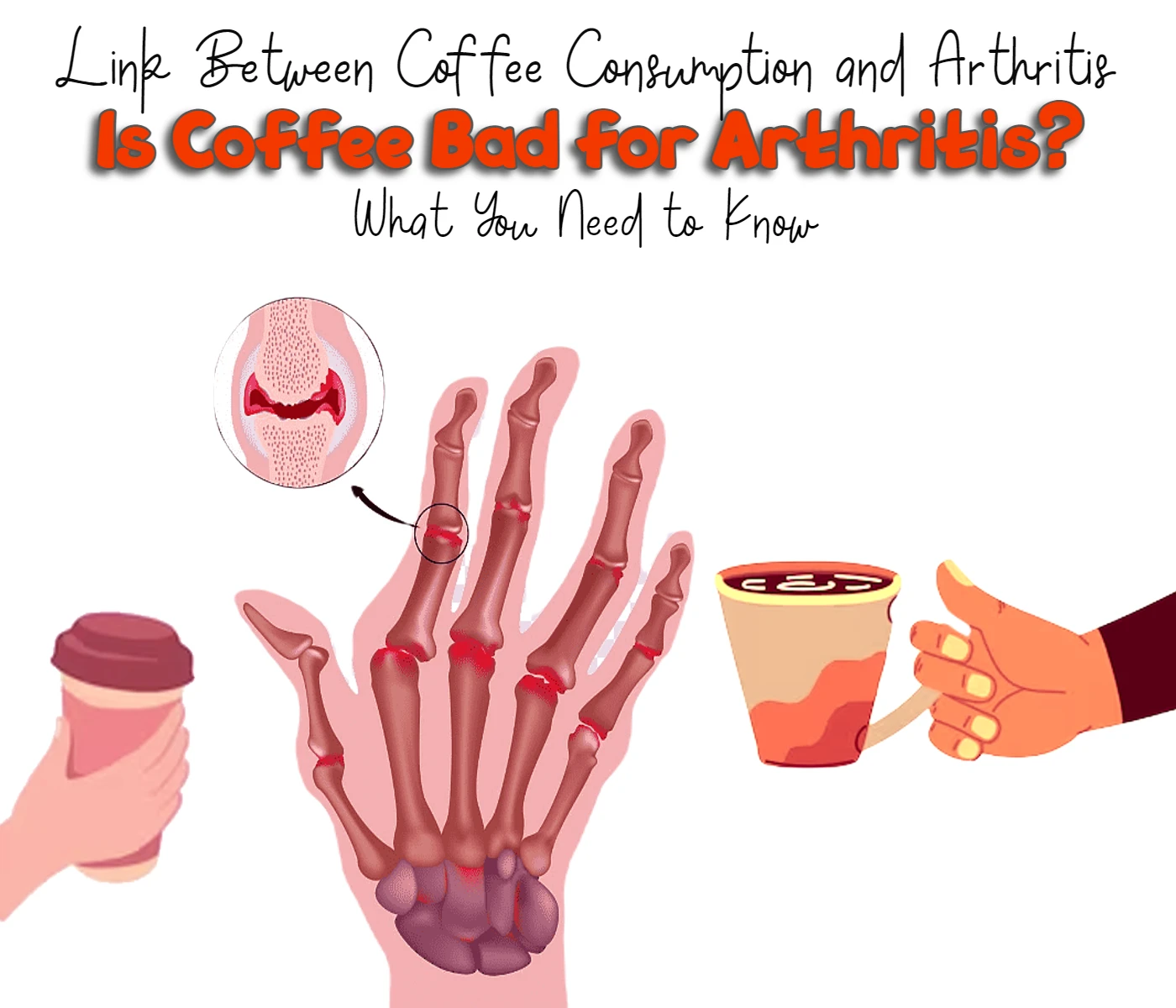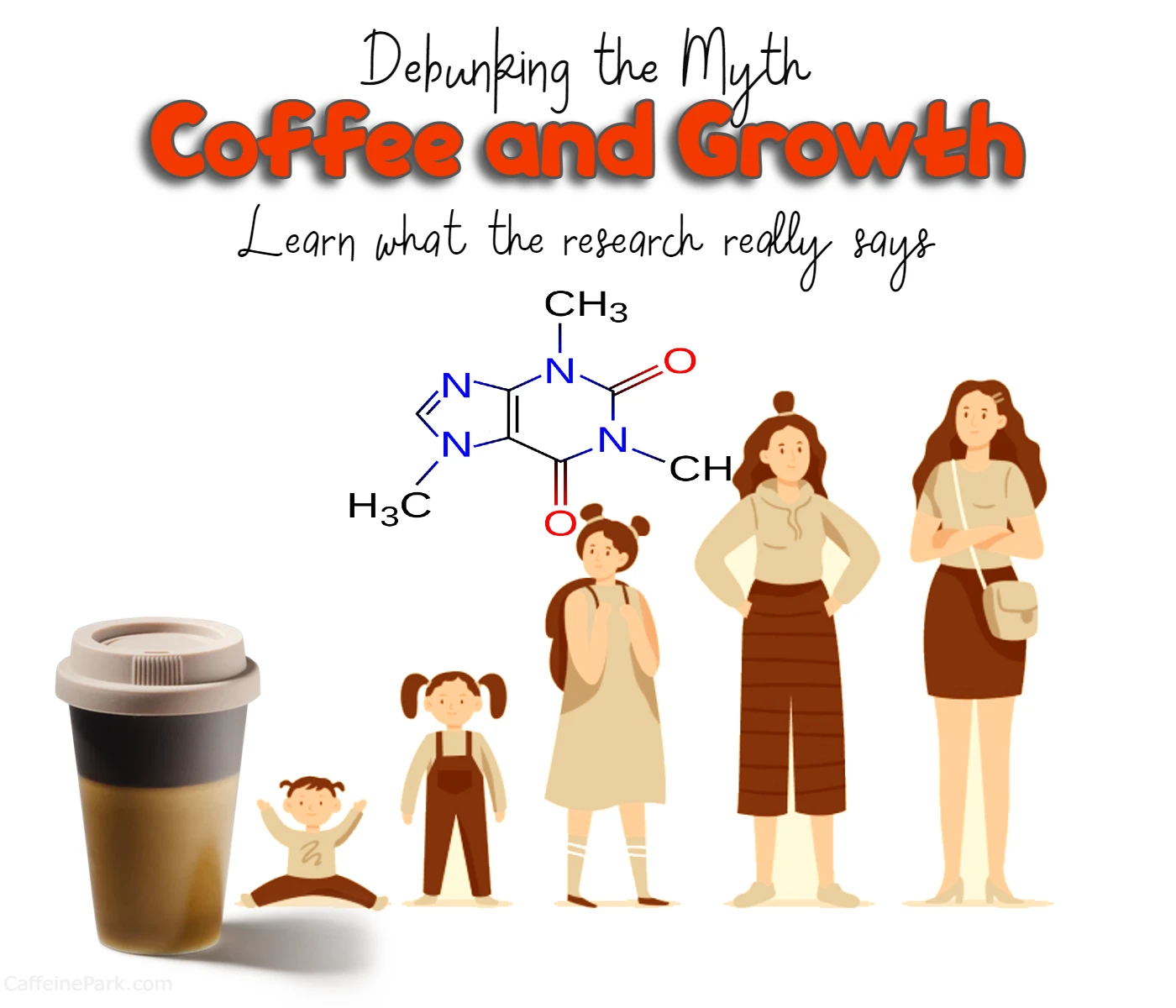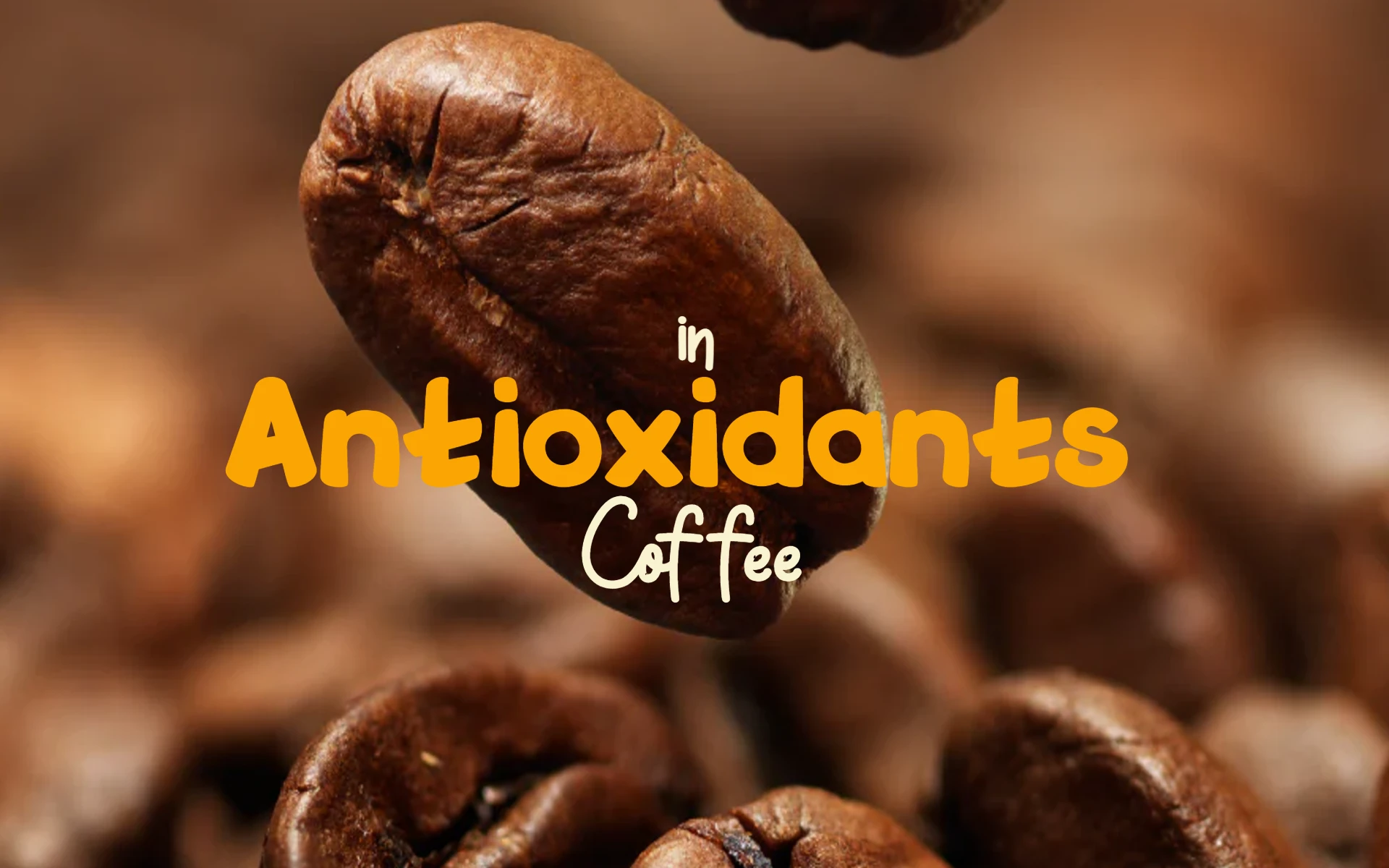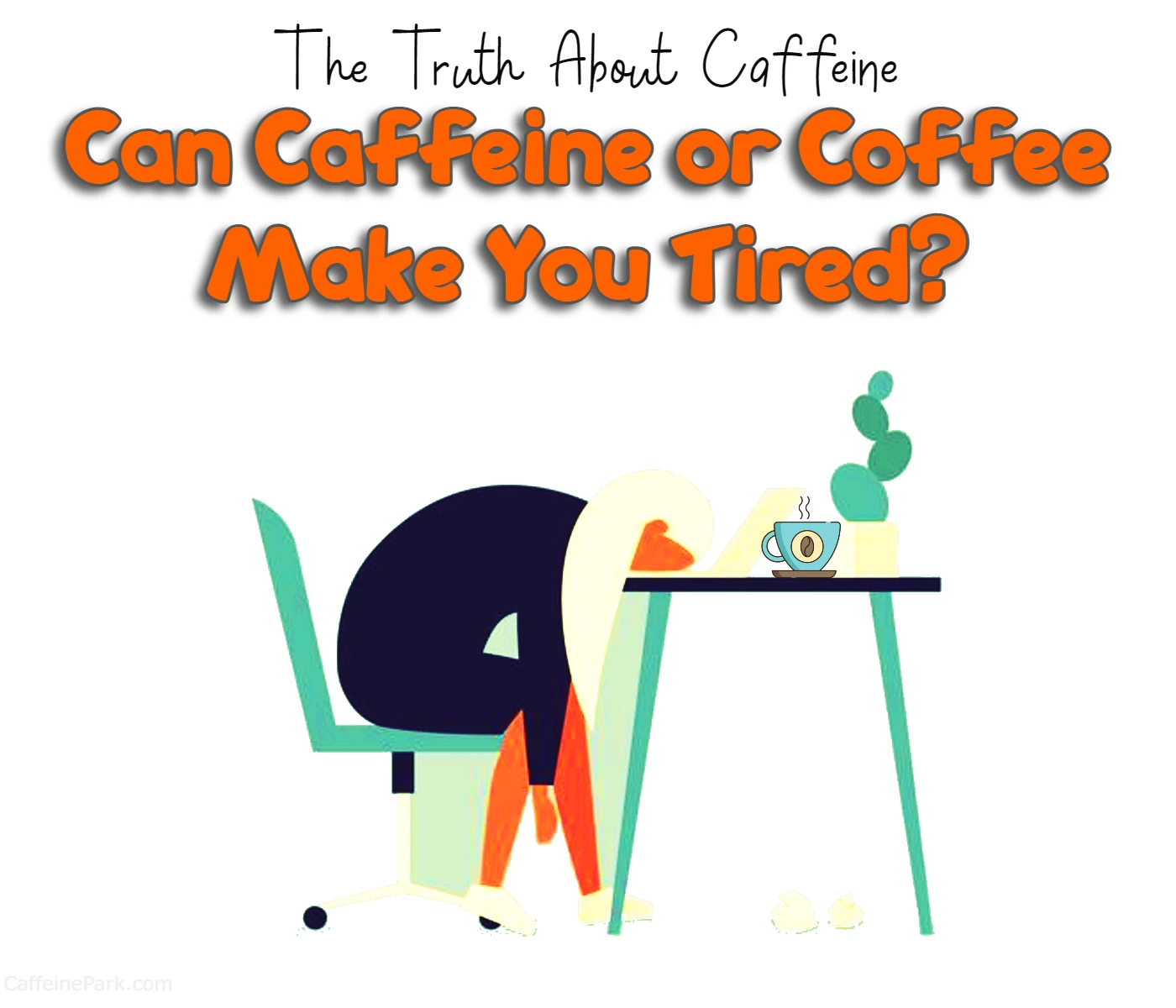Caffeine in Energy Drinks
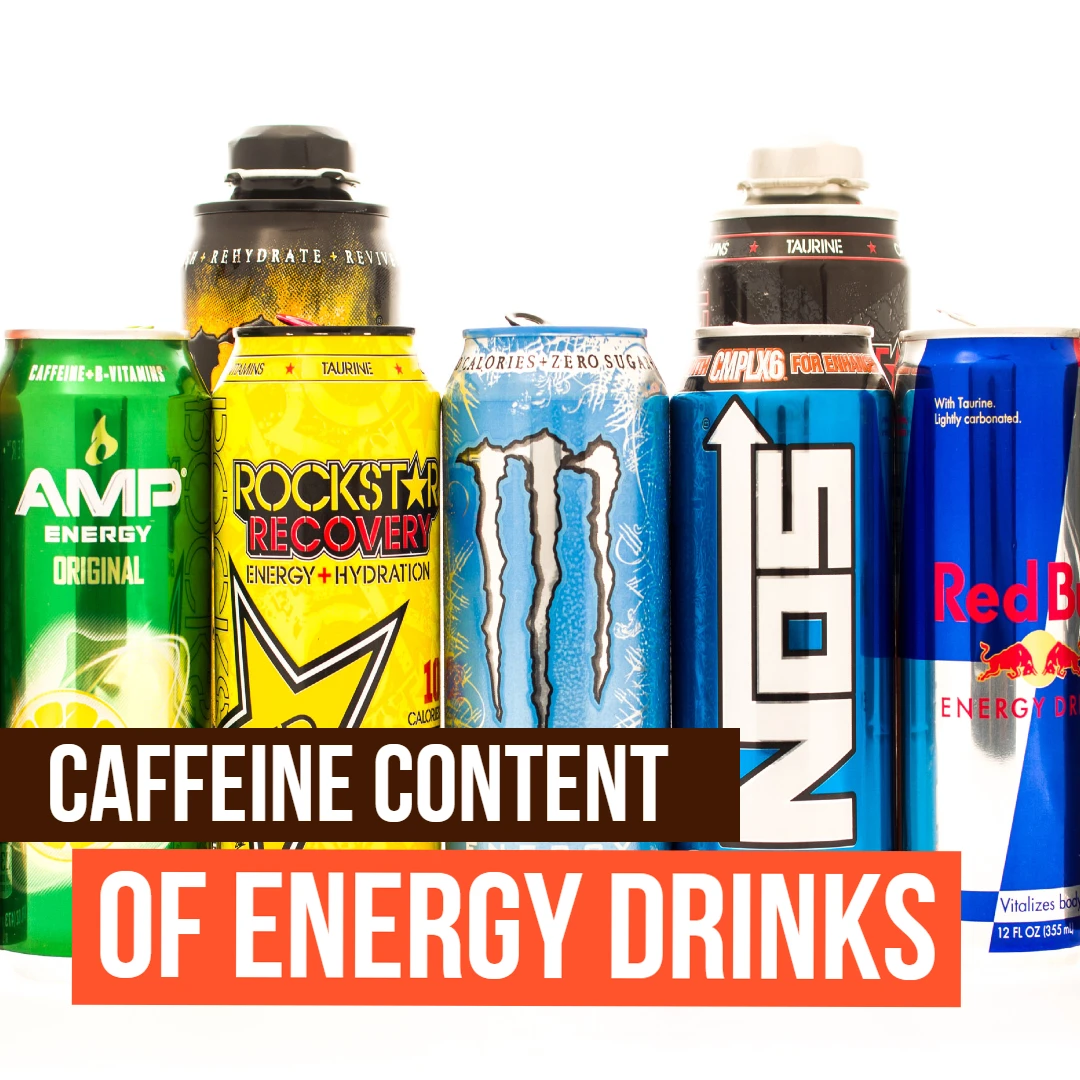
Energy drinks are typically marketed as stimulant beverages that provide an extra boost of energy. They are often used to increase performance, endurance, and concentration. Caffeine is the active ingredient in most energy drinks and is a psychoactive stimulant.
The caffeine content in energy drinks varies widely depending on the type of drink but can range from 40 milligrams per serving up to 500 milligrams per serving.
Factors affect the caffeine in energy drinks
There are several factors that can affect the caffeine content of energy drinks, including:
- Brand: Different brands of energy drinks can have varying amounts of caffeine, so it’s important to check the label to see exactly how much caffeine is in a particular brand.
- Size: The size of the can or bottle can also affect the caffeine content. Larger cans or bottles may have more caffeine than smaller ones.
- Ingredients: Some energy drinks may also contain additional ingredients such as herbs or amino acids that can affect the caffeine content.
- Formulation: Some energy drinks are formulated specifically for athletes or for people who need a boost of energy for a specific task, these drinks may have more caffeine than other energy drinks.
- Country regulations: Different countries have different regulations on the amount of caffeine that can be included in energy drinks, this may affect the caffeine content of energy drinks from different countries.
- Mixing with other drinks: Mixing energy drinks with other caffeinated beverages such as coffee or tea can increase the overall caffeine content, so it’s important to keep track of the total amount of caffeine consumed.
- Personal tolerance: Some people may be more sensitive to caffeine than others, so the same amount of caffeine may have a different effect on different people.
- Purpose: Some energy drinks are marketed as “low-caffeine” or “caffeine-free” options for people who want to avoid or limit their caffeine intake.
- Energy shots: Some energy shots are available in the market, which have higher caffeine content than regular energy drinks, usually, these shots contain around 200mg of caffeine per serving.
- Add-ons: Some energy drinks may have additional ingredients such as guarana or yerba mate which naturally contain caffeine and can add to the overall caffeine content.
How Much Caffeine is in Energy Drinks? (High to Low)
The amount of caffeine in energy drinks can vary widely, but it is typically between 30-80mg per 8 fluid ounces (240mL). However, some energy drinks can contain as much as 200mg of caffeine per serving.
Caffeine in Energy drinks in the United State
Top Selling Energy Drinks
| Top Selling Energy Drinks | Serving Size | Caffeine |
|---|---|---|
| Red Bull | 8.3 fl oz. | 80mg |
| Monster | 16 fl oz. | 160mg |
| Rockstar | 16 fl oz. | 160mg |
| Full throttle | 16 fl oz. | 144mg |
| No Fear | 16 fl oz. | 174mg |
| Amp | 8.4 fl oz. | 75mg |
| SoBe Adrenaline Rush | 8.3 fl oz. | 79mg |
| Tab Energy | 10.5 fl oz. | 95mg |
Higher Caffeine Energy drinks
| Serving Size | Caffeine | |
|---|---|---|
| Wired X505 | 24 fl oz. | 505mg |
| Fixx | 20 fl oz. | 500mg |
| BooKoo Energy | 24 fl oz. | 360mg |
| Wired X344 | 16 fl oz. | 344mg |
| SPIKE Shooter | 8.4 fl oz. | 300mg |
| Viso Energy Vigor | 20 fl oz. | 300mg |
| Cocaine Energy Drink | 8.4 fl oz. | 280mg |
| Jolt Cola | 23.5 fl oz. | 280mg |
| NOS | 16 fl oz. | 250mg |
| Redline RTD | 8 fl oz. | 250mg |
| Blow (energy Drink Mix) | 8 fl oz. | 240mg |
Lower Caffeine Energy Drinks
| Serving Size | Caffeine | |
|---|---|---|
| Bomba Energy | 8.4 fl oz. | 75mg |
| HiBall Energy | 10 fl oz. | 75mg |
| Airforce Nutrisoda Energize | 8.5 fl oz. | 50mg |
| Whoop Ass | 8.5 fl oz. | 50mg |
| Vitamin Water (Energy Citrus) | 20 fl oz. | 50mg |
High Concentration Energy Drinks
| Serving Size | Caffeine | |
|---|---|---|
| RedLine Power Rush | 2.5 fl oz. | 350mg |
| Ammo | 1 fl oz. | 171mg |
| Powershot | 1 fl oz. | 100mg |
| Fuel Cell | 2 fl oz. | 180mg |
| Coca-Cola Classic | 12 fl oz. | 34.5mg |
| Pepsi Cola | 12 fl oz. | 38mg |
| Dr. Pepper | 12 fl oz. | 41mg |
| Mountain Dew | 12 fl oz. | 54mg |
Side Effects too much caffeine from energy drinks
Consuming too much caffeine from energy drinks can lead to a number of negative side effects, including:
- Insomnia: Caffeine can interfere with sleep, making it difficult to fall asleep or stay asleep.
- Nervousness: High levels of caffeine can cause feelings of jitteriness, nervousness, or anxiety.
- Rapid heartbeat: Caffeine can increase the heart rate, which can be dangerous for people with heart conditions.
- High blood pressure: Consuming too much caffeine can cause a temporary increase in blood pressure, which can be harmful to some people.
- Dehydration: Energy drinks are often high in caffeine and sugar, which can lead to dehydration if consumed in large quantities.
- Headaches: Consuming too much caffeine can cause headaches or migraines.
- Digestive problems: Energy drinks can cause stomach upset, nausea, and diarrhea.
- Dependence: Regular consumption of energy drinks can lead to caffeine dependence and withdrawal symptoms such as fatigue, irritability, and depression.
- Interaction with Medications: Energy drinks can interact with certain medications such as birth control pills, antidepressants, and blood pressure medications, which can increase the risk of side effects.
- Fatigue: Despite the initial boost in energy, overconsumption of energy drinks can ultimately lead to fatigue as the effects of caffeine wear off.
- Nutrient deficiencies: Energy drinks can be high in sugar and calories which can contribute to nutrient deficiencies if consumed in large quantities.
- Weight gain: Consuming too many energy drinks can lead to weight gain, due to the high sugar content.
- Tooth decay: The high sugar content in energy drinks can cause tooth decay and erosion of tooth enamel.
- Risk of addiction: Regular consumption of energy drinks can lead to addiction and dependence, making it difficult to quit or reduce consumption.
- Risk of injury or accidents: High levels of caffeine can cause increased heart rate, anxiety, and jitters, which can increase the risk of accidents and injuries.
It’s important to consume energy drinks in moderation and to be aware of the potential side effects. If you experience any negative side effects after consuming an energy drink, it’s best to stop drinking them and consult a doctor if necessary.
Energy Drinks and Health
The Appeal of Energy Drinks
Sipping a beverage that offers quick energy may appeal to people who feel fatigued or who believe caffeine can provide an edge when exercising or playing competitive sports. Although statements on the websites of energy drinks warn that these beverages may not be suitable for children, youth are among their largest consumers. An energy drink may be used by adolescents or college students cramming for exams through the night, or by a young athlete before an important game.
Negative Health Effects
While it is true that some controlled trials have shown temporary improved alertness and reversal of fatigue after taking energy drinks, as well as enhanced physical performance in young athletes, the majority of studies show an association with negative health effects. These include increased stress, aggressive behaviors like fighting, alcohol/cigarette abuse, increased blood pressure, increased risk of obesity and type 2 diabetes, poor sleep quality, and stomach irritation.
Ingredients in Energy Drinks
A typical energy drink may contain the following: carbonated water, around 40 grams of sugar (from sucrose and/or glucose), 160 mg or more of caffeine, artificial sweetener, and herbs/substances associated with mental alertness and performance but that lack scientific evidence with controlled trials (taurine, Panax ginseng root extract, L-carnitine, L-tartrate, guarana seed extract, B vitamins).
Special Concerns with Energy Drinks
- Amplified negative health effects in adolescents. Children and teens may experience heightened effects from the high amounts of caffeine, and added sugars including high fructose corn syrup, low-calorie sweeteners, and herbal stimulants, partly due to their smaller body size.
- Marketing tactics towards youth. Estimates show more than a 240% increase in U.S. and worldwide sales of energy drinks. It is a $21 billion industry, with marketing campaigns targeting youth and being sold in places that are easily accessed by this age group. Youth are exposed to energy drink advertising on children’s websites, computer games, television, supermarkets, and sporting events.
- Negative health outcomes. Emerging evidence has linked energy drink consumption with negative health consequences in youth like risk-seeking behaviors, poor mental health, adverse cardiovascular effects, and metabolic, renal, or dental problems.
- Excessive caffeine. Too much caffeine from any beverage, particularly when several are taken in one day in sensitive individuals, can lead to anxiety, insomnia, heart problems like irregular heartbeat and elevated blood pressure, and in rare cases seizures or cardiac arrest. Some energy drinks may contain as much as 500 mg per can (the amount in 14 cans of cola).
- High sugar content. Because of the excessive sugar content in some energy drinks, they carry the same health risks associated with other sugar-sweetened beverages.
- Dangers with alcohol. A greater danger is introduced if energy drinks are combined with alcohol, a trend largely seen in underage drinkers and associated with binge drinking. Studies suggest that drinking this type of cocktail leads to a greater alcohol intake than if just drinking alcohol alone.
- Lack of regulation. The Food and Drug Administration (FDA) does not regulate energy drinks but enforces a caffeine limit.
Conclusion
In conclusion, while energy drinks may provide a temporary boost in energy and alertness, they come with a host of negative health effects, especially in adolescents and young adults. The high levels of caffeine, sugar, and herbal stimulants can lead to an increased risk of obesity, type 2 diabetes, poor sleep quality, stomach irritation, and even heart problems. Furthermore, the marketing tactics used by energy drink companies often target youth, making them particularly vulnerable to the negative effects of these beverages. It is important for individuals, especially youth, to be aware of the potential risks associated with energy drinks and to consume them in moderation. Additionally, regulators should consider implementing stricter regulations on the production and marketing of energy drinks to protect public health.
FAQs
How much caffeine from energy drinks is too much?
The American Medical Association recommends no more than 400mg of caffeine per day for healthy adults. This is roughly equivalent to four 8-ounce cups of brewed coffee or two energy drinks. However, some people may be more sensitive to caffeine than others, so it’s best to pay attention to how your body reacts to caffeine and adjust your consumption accordingly.
Are energy drinks safe to consume?
Moderate consumption of energy drinks is considered safe for most healthy adults. However, consuming large amounts of caffeine or consuming energy drinks on an empty stomach can lead to negative side effects. It’s important to read the label and be aware of the caffeine content in energy drinks and to consume them in moderation.
Are energy drinks bad for children?
Energy drinks are not recommended for children and adolescents as their growing bodies and brains are more sensitive to the effects of caffeine. The American Academy of Pediatrics advises against the consumption of energy drinks for children and adolescents due to the high caffeine content and potential negative health effects.
Are energy drinks good for athletes?
Energy drinks can be beneficial for athletes as they can help improve endurance and performance. However, it’s important to be aware of the caffeine content and to consume energy drinks in moderation. Additionally, it’s important for athletes to stay properly hydrated and to consume energy drinks as part of a balanced diet.
Can energy drinks be mixed with alcohol?
Mixing energy drinks with alcohol can be risky as they can mask the effects of alcohol and lead to overconsumption. The combination of caffeine and alcohol can also cause dehydration and increase the risk of accidents and injuries. It’s best to avoid mixing energy drinks with alcohol.
Can energy drinks cause heart problems?
Consuming too much caffeine from energy drinks can cause an increase in heart rate and blood pressure, which can be harmful to people with heart conditions. It’s important for individuals with heart problems to limit their consumption of energy drinks and to consult with a doctor before consuming them.
Can energy drinks cause diabetes?
Regular consumption of energy drinks that are high in sugar can contribute to weight gain and an increased risk of type 2 diabetes. It’s important to consume energy drinks in moderation and to be aware of the sugar content in them.
Can energy drinks affect mental health?
Consuming too much caffeine can cause anxiety, nervousness, and jitteriness. Additionally, regular consumption of energy drinks can lead to addiction, making it difficult to quit or reduce consumption, which can affect mental health. It’s important to consume energy drinks in moderation and to be aware of how they affect one’s mental health.
Can energy drinks cause kidney problems?
Consuming too much caffeine can lead to dehydration, which can be harmful to the kidneys. Additionally, energy drinks that contain high levels of sugar can also affect kidney function. It’s important to consume energy drinks in moderation and to stay properly hydrated.
Are there any natural alternatives to energy drinks?
There are natural alternatives to energy drinks such as drinking water, herbal teas, and eating a balanced diet. Some natural supplements like ginseng, mucuna pruriens, and ashwagandha also have energizing properties and can be consumed as a natural alternative to energy drinks, but it is always best to consult with a healthcare professional before taking any supplement.
Read More:
Contents
- Factors affect the caffeine in energy drinks
- How Much Caffeine is in Energy Drinks? (High to Low)
- Caffeine in Energy drinks in the United State
- Side Effects too much caffeine from energy drinks
- Energy Drinks and Health
- FAQs
- How much caffeine from energy drinks is too much?
- Are energy drinks safe to consume?
- Are energy drinks bad for children?
- Are energy drinks good for athletes?
- Can energy drinks be mixed with alcohol?
- Can energy drinks cause heart problems?
- Can energy drinks cause diabetes?
- Can energy drinks affect mental health?
- Can energy drinks cause kidney problems?
- Are there any natural alternatives to energy drinks?

